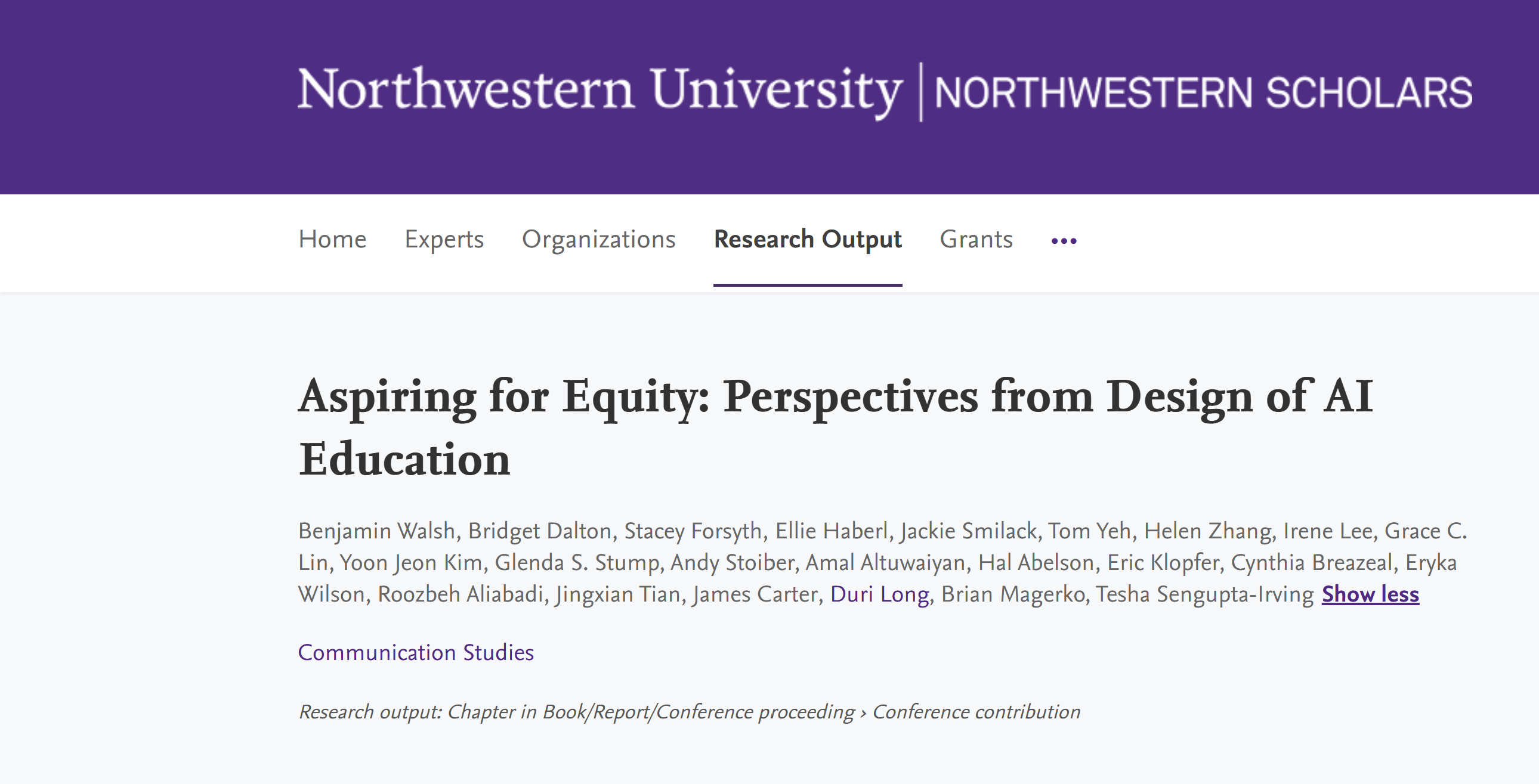ReadyAI Research
Ongoing Research
“Charting the Course” Invited to UNU Macau AI Conference 2025
From North Carolina to Macau, Youth-Led AI Education Shines on the Global Stage
Artificial Intelligence (AI) is reshaping society, making early AI literacy and ethical understanding essential for young learners. K-12 AI education has gained tremendous momentum in the past years. Nevertheless, many resources still require coding skills or digital access, and often overlook ethics. At the same time, young people are stepping up as active creators who lead AI-driven initiatives to solve real-world problems. To support this momentum, we need inclusive, ethically grounded AI education that empowers all students to lead with purpose and innovation. “Charting the Course” does just that.

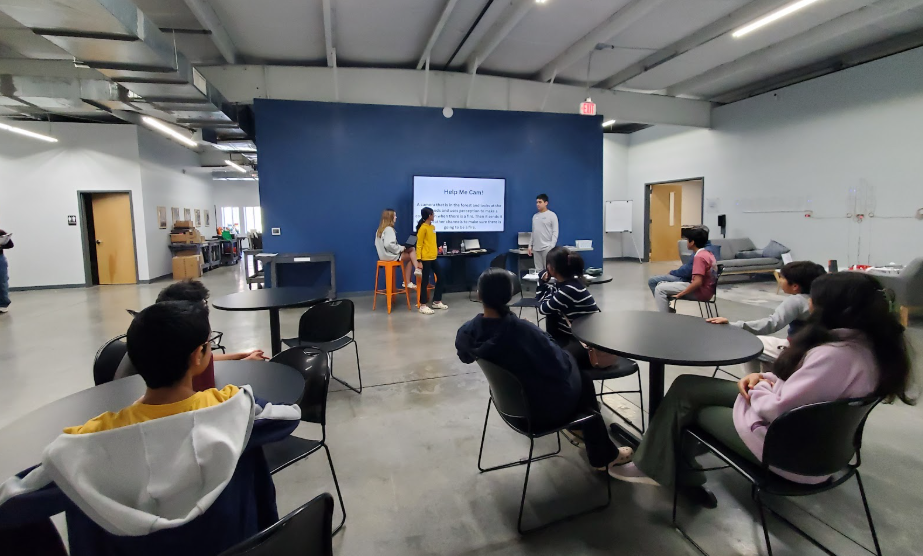
Journey Along the Tech Trail with Youth Explorers
How “Charting the Course” Decodes AI Education for Grade 5-9 Students in Research Triangle, NC
Charting the Course exemplifies how youth-led programs can democratize AI education and empower the next generation of responsible innovators. Anchoring the ethics-by-design curriculum in real-world issues, the program equips students not only with technical literacy, but also with the critical thinking and compassion needed to use AI responsibly.
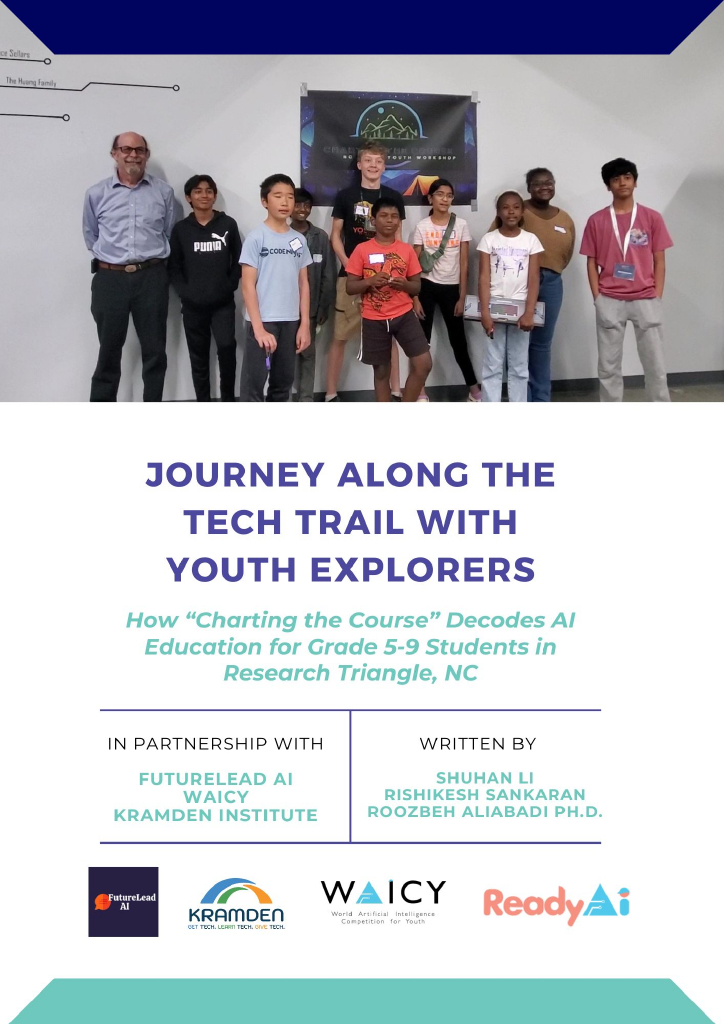
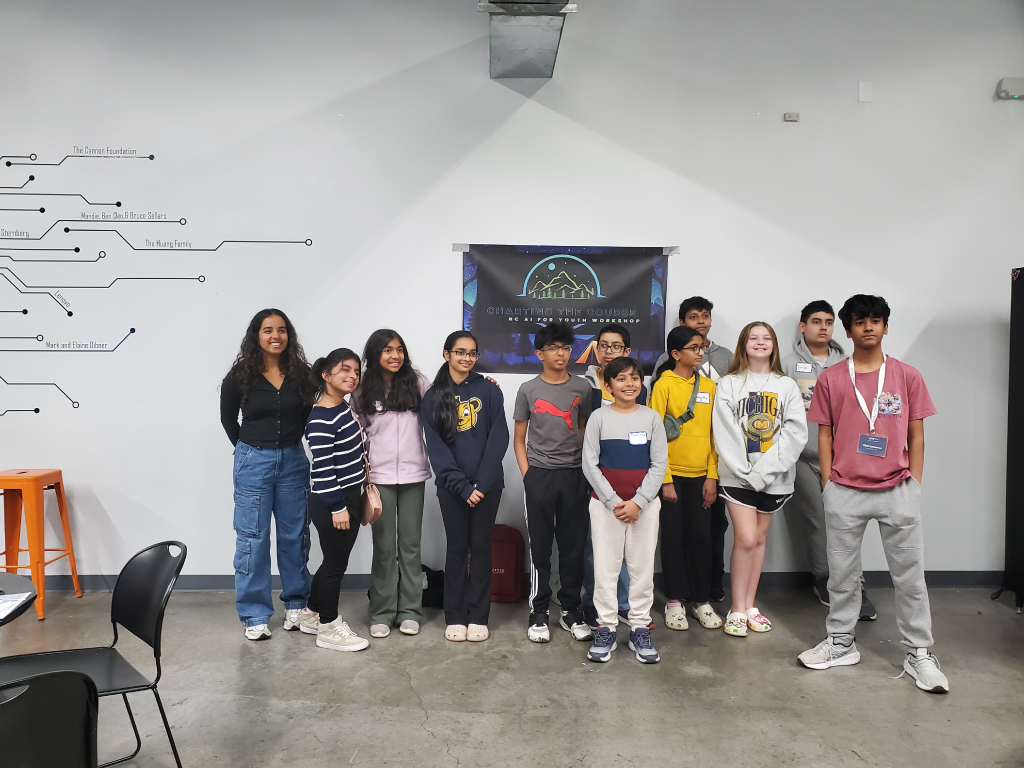
Greening the Smart Oasis of Tomorrow
How “Design Empathy” Nurtures the Architects of Future Living
LED BY: Stanford University & ReadyAI
“Design Empathy” is an interdisciplinary, project-based program on climate resiliency, smart city design, and community engagement. This program is spearheaded by Professor James Ehrlich of the Center for Compassion & Altruism Research & Education (CCARE) at Stanford University. In partnership with Regen_U and ReadyAI, “Design Empathy” aimed to popularize climate education and AI literacy by deploying experiential learning methods and cutting-edge technologies, namely, VillageOS™. Manifesting CCARE’s ethos, “Design Empathy” espouses Dr. James R. Doty’s mindfulness practices throughout the course, engaging participants in wellness routines that cultivate deep empathy with nature and with each other.
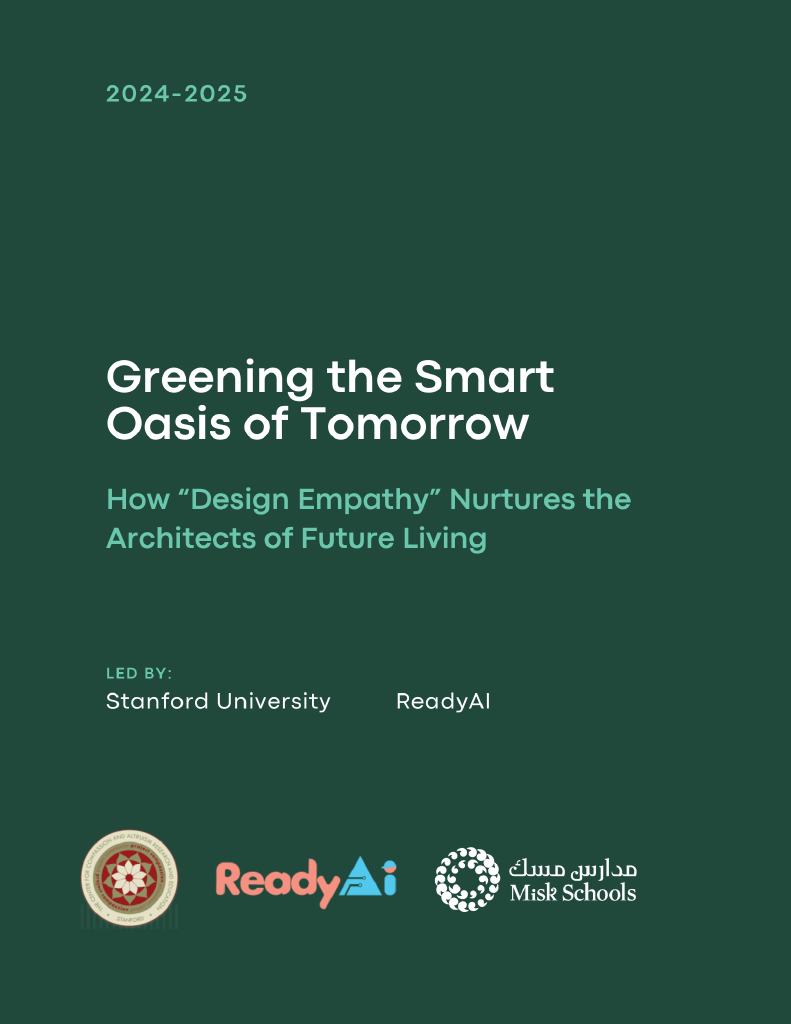
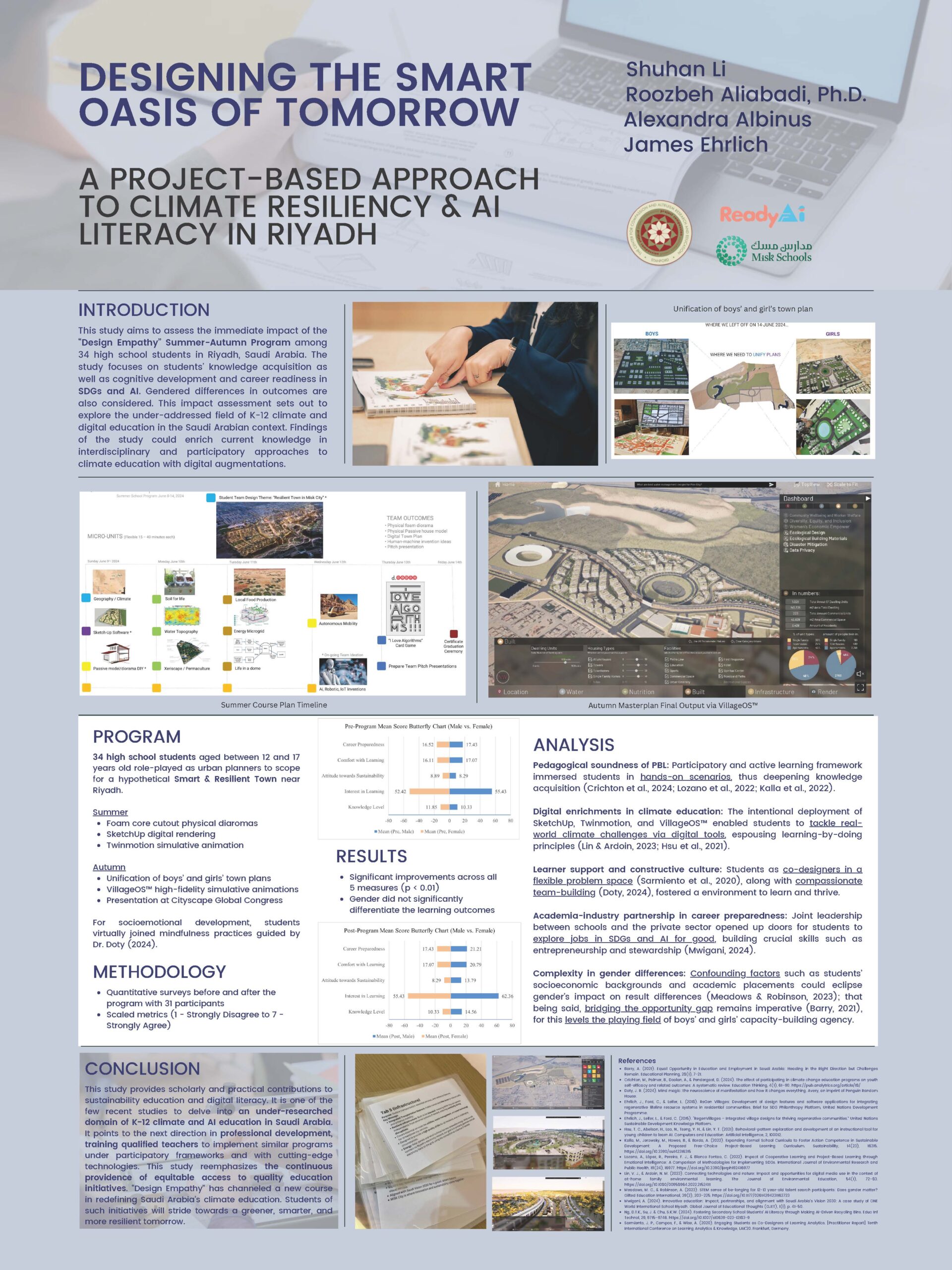

Past Conferences
AI for Acclimation: Assisting Displaced Students in Refugee Facilities through Activity-Driven Lessons
AIET 2024
Abstract. This experience report illustrates how an activity-based AI education program can shape displaced students’ data literacy and sense of belonging, preparing them for their career and civic engagement. The participants were between 13 and 18 years old and housed at a facility near Athens, Greece. Based on interviews, surveys, and classroom observations with students and faculties, we identified increased student attentiveness, community-building, and trust in peers and faculties. For practitioners and policymakers in refugee education, this project initiates further endeavor in devising culturally responsive curricula and pedagogies that can both improve displaced students’ academic performance and enhance their socioemotional wellness.
Keywords: Refugee Education, AI Education, Data Literacy, Sense of Belonging
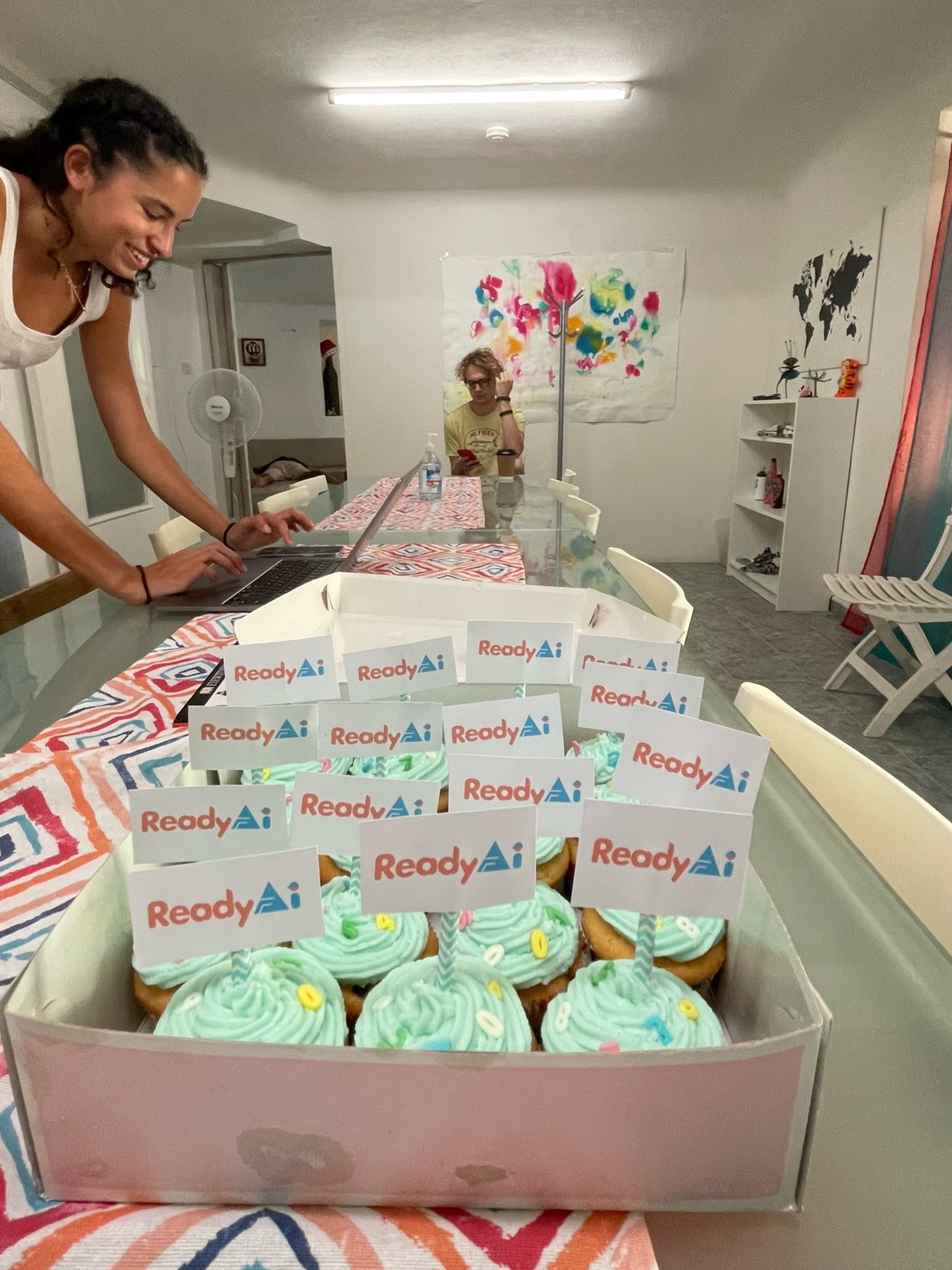
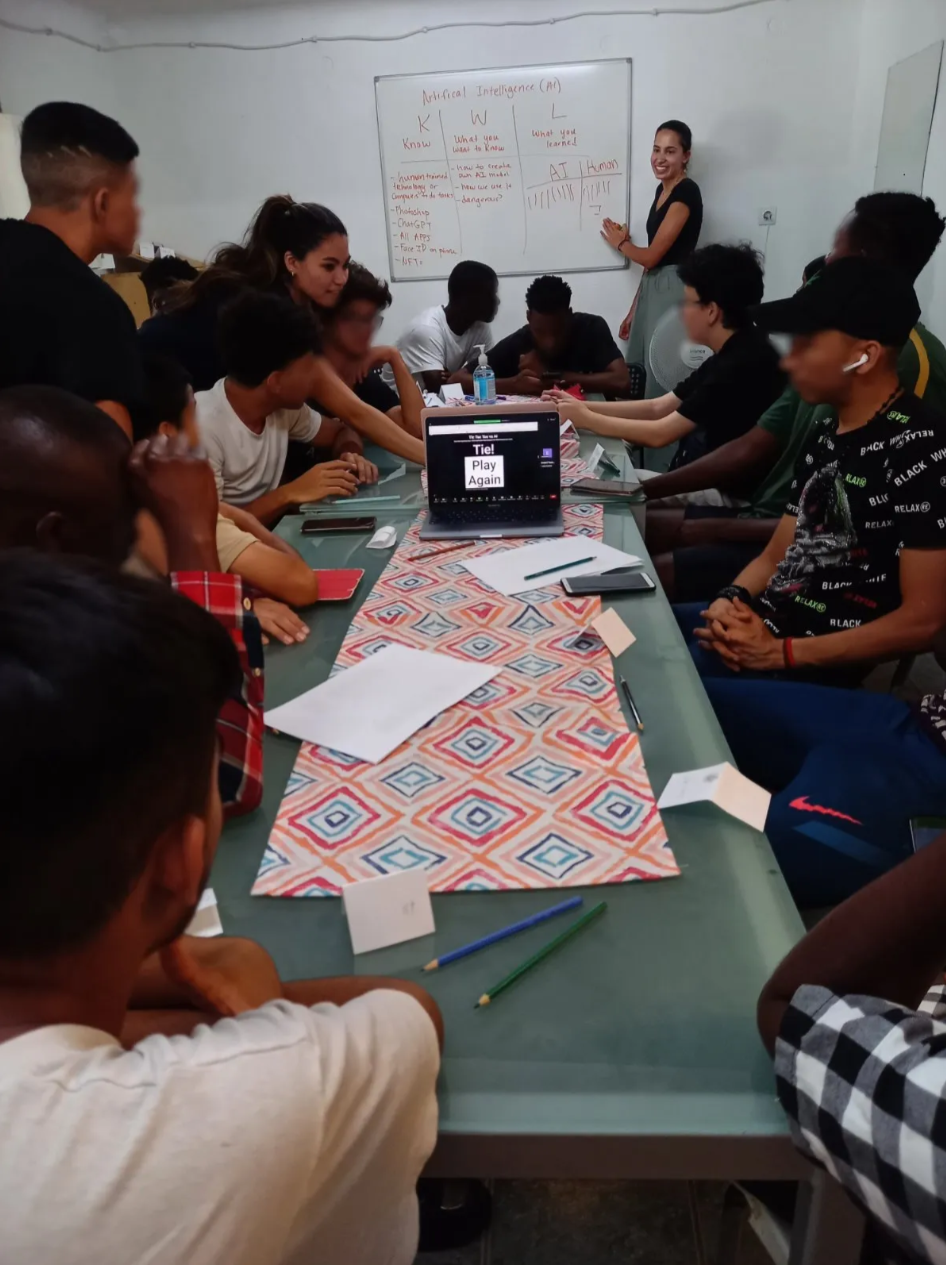
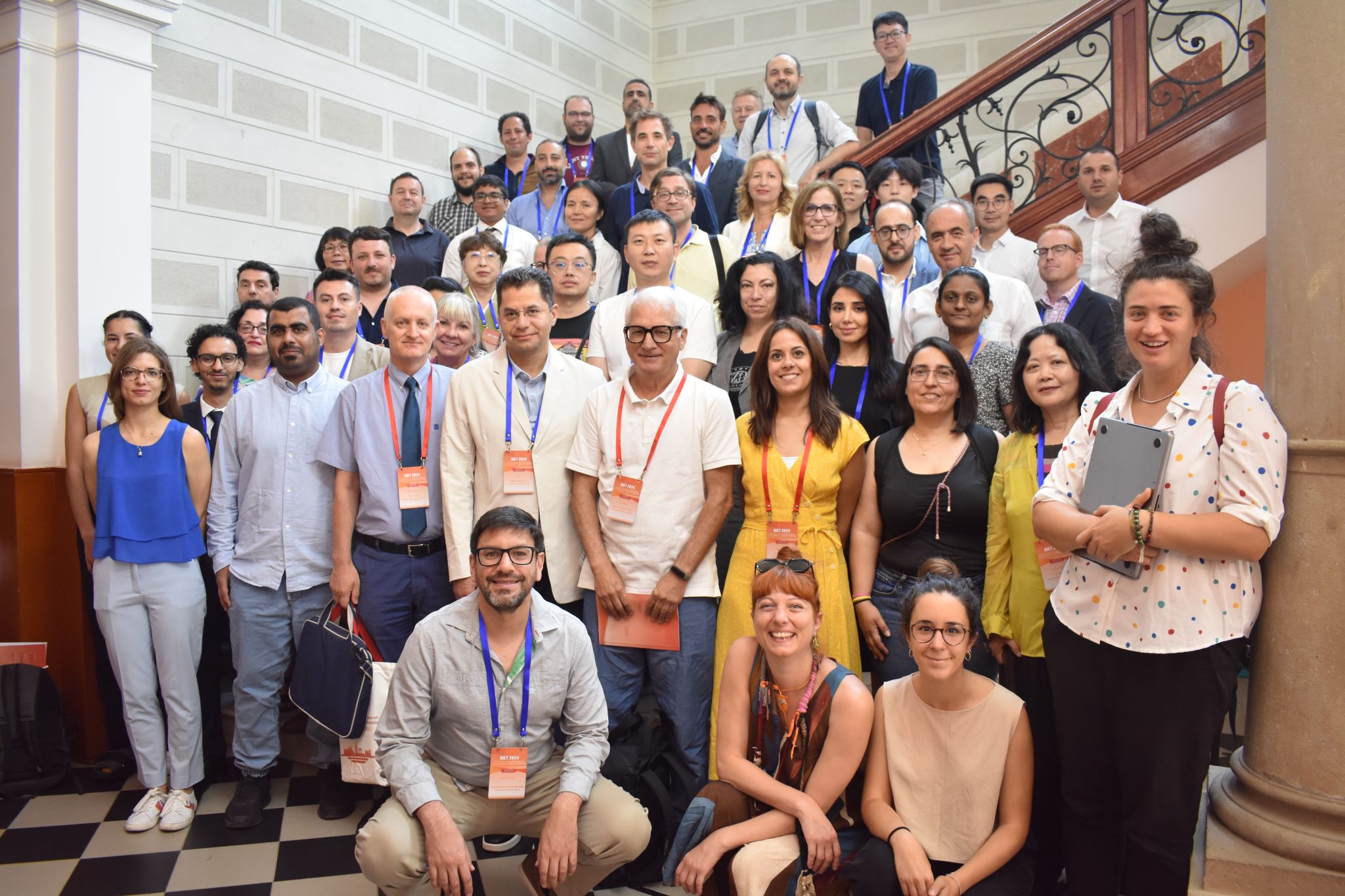
Transdisciplinary AI Education: The Confluence of Curricular and Community Needs in the Instruction of Artificial Intelligence
AIET 2023
Abstract. The integration of artificial intelligence (AI) into education has the potential to transform the way we learn and teach. In this paper, we examine the current state of AI in education and explore the potential benefits and challenges of incorporating this technology into the classroom. The approaches currently available for AI education often present students with experiences only focusing on discrete computer science concepts agnostic to a larger curriculum. However,teaching AI must not be siloed or interdisciplinary. Rather, AI instruction ought to be transdisciplinary, including connections to the broad curriculum and community in which students are learning. This paper delves into the AI program currently in development for Neom Community School and the larger Education, Research, and Innovation Sector in Neom, Saudi Arabia’s new megacity under development. In this program, AI is both taught as a subject and to learn other subjects within the curriculum through the school system’s International Baccalaureate (IB) approach, which deploys learning through “Units of Inquiry.” This approach to education connects subjects across a curriculum under one major guiding question at a time. The proposed method offers a meaningful approach to introducing AI to students throughout these Units of Inquiry, as it shifts AI from a subject that students “like” or “not like” to a subject that is taught throughout the curriculum.
Keywords: AI education · Transdisciplinary AI Education · Curriculum development · Pedagogy · IB Curriculum
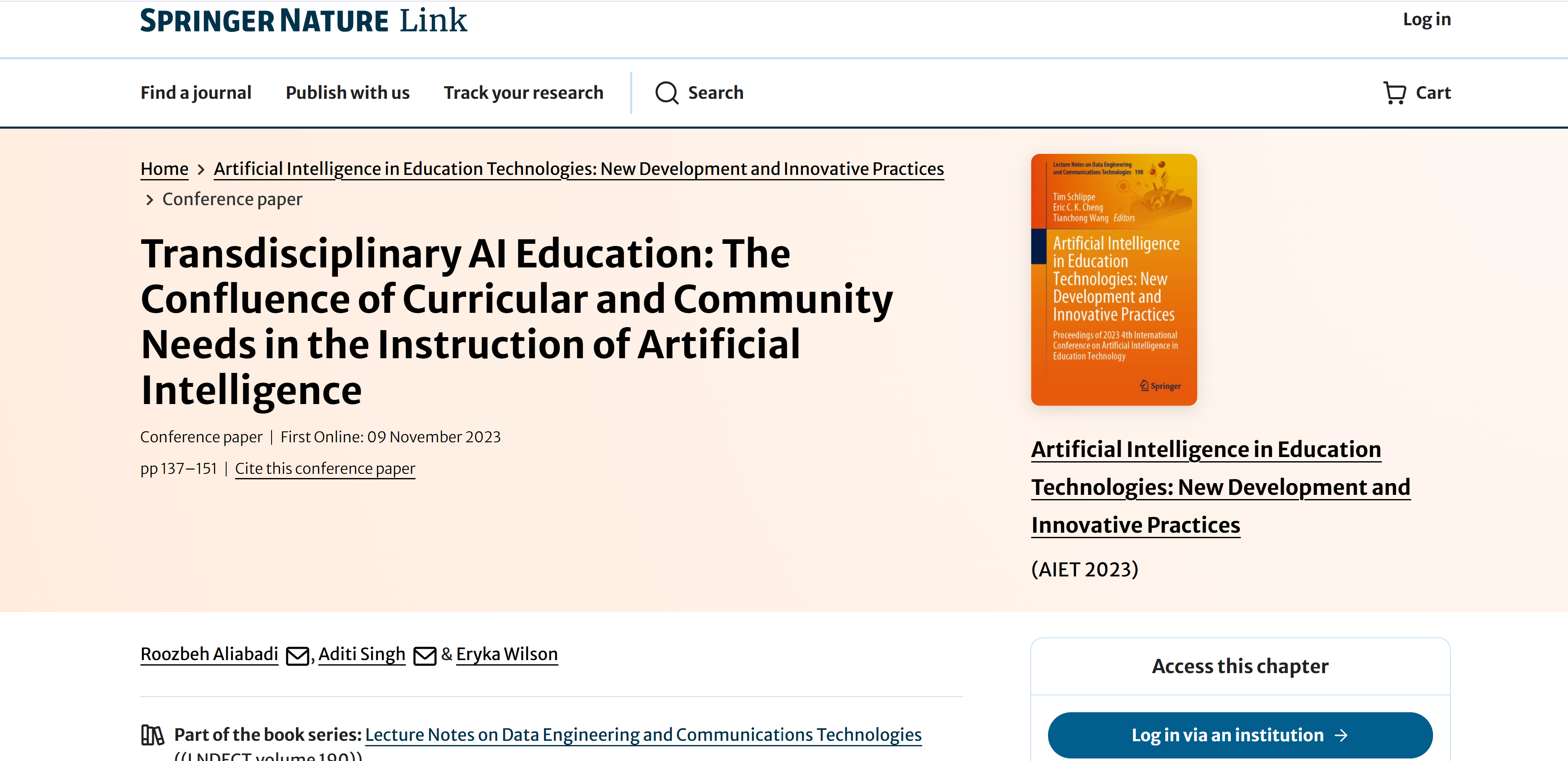
Critical Democratized AI Pedagogy for K-12
EAAI 2023 Diversity & Inclusion
AI literacy has only recently emerged as a distinct discipline within academia. To date, the bulk of empirical research has concentrated on post-secondary settings (e.g., Ng et al.), leaving K–12 environments relatively under-examined. At the same time, the very nature of the technologies involved—described by Papert as protean, by Turkle as opaque, and by Mishra and Koehler (in their TPACK framework) as subject to rapid change—compounds the challenge of defining effective instructional approaches.
These intersecting factors underscore a pressing need to explore and articulate sound pedagogical strategies for K–12 AI education. How can teachers guide students through a technological landscape that continually shifts shape, conceals its inner workings, and resists static definition? Addressing this question will be critical to establishing evidence-based practices that foster genuine AI literacy from the earliest grades onward.
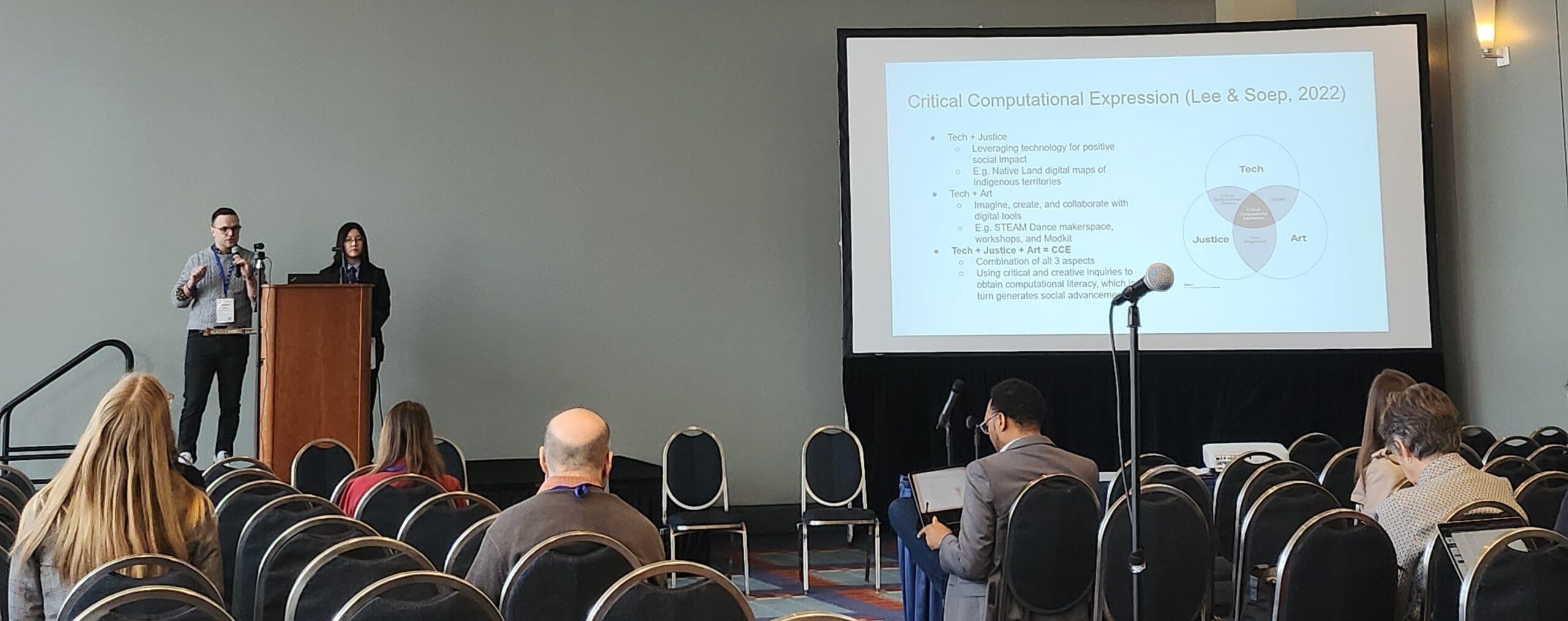
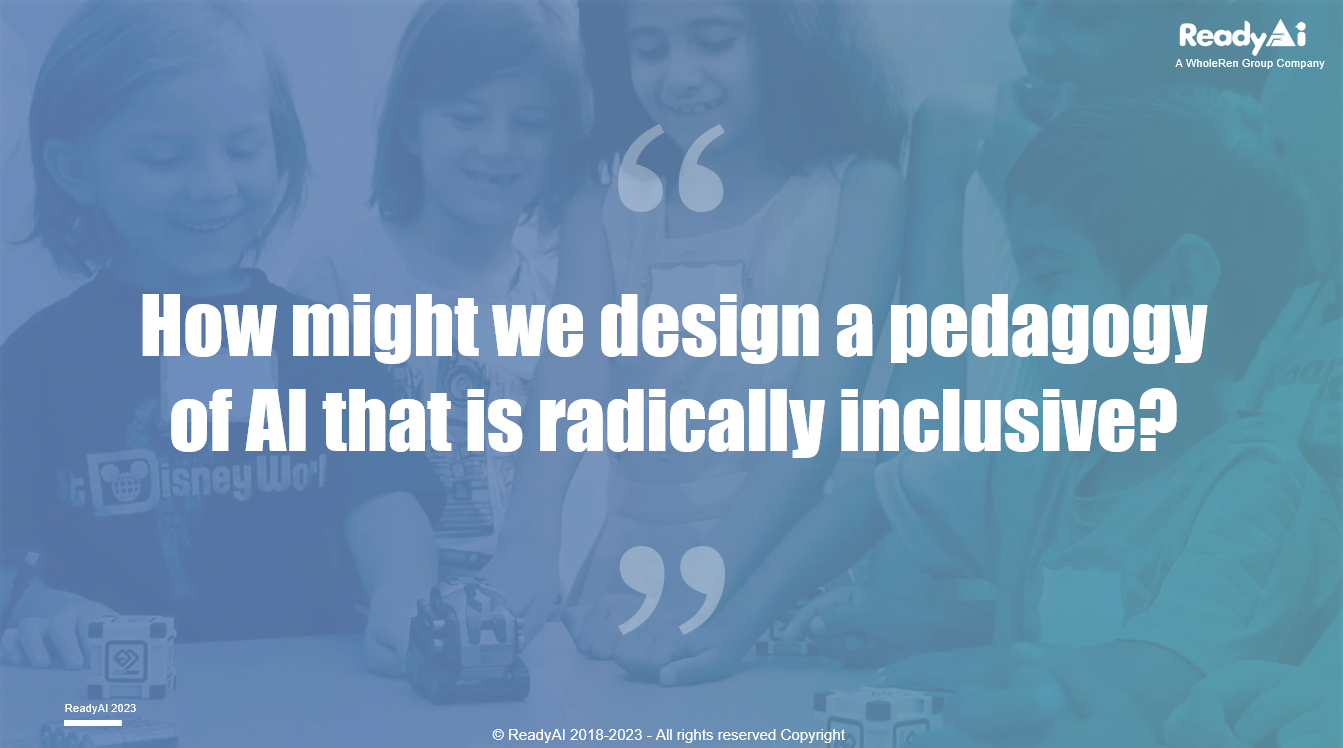
“A Fresh Squeeze on Data”: Exploring Gender Differences in Self-Efficacy and Career Interest in Computing Science and Artificial Intelligence among Elementary Students
AIED 2023
Abstract. Artificial intelligence (AI) is a growing field in both global job mar-kets and educational spaces. This non-experimental quantitative study aims to explore how the educational program A Fresh Squeeze on Data affects students’ self-efficacy and career choices and whether gender will differentiate the learning outcomes. Under the social cognitive career theory framework, this study designs questionnaires as data collection instrument. The results suggest that the program significantly improves students’ comfortability with AI-related subjects but not for career interest or other measurements in self-efficacy. Unexpectedly, the program’s effect is not divided by gender. Nevertheless, this study opens up conversations about assisting students from underrepresented backgrounds to envision success in AI courses and career pathways through an activity-driven curriculum. The paper also informs educators and researchers to devise culturally responsive pedagogy in teaching AI that empowers young girls before they develop a gendered career view.
Keywords: K-12 Education, AI Education, Gender Equity, Self-Efficacy, Career Interest.
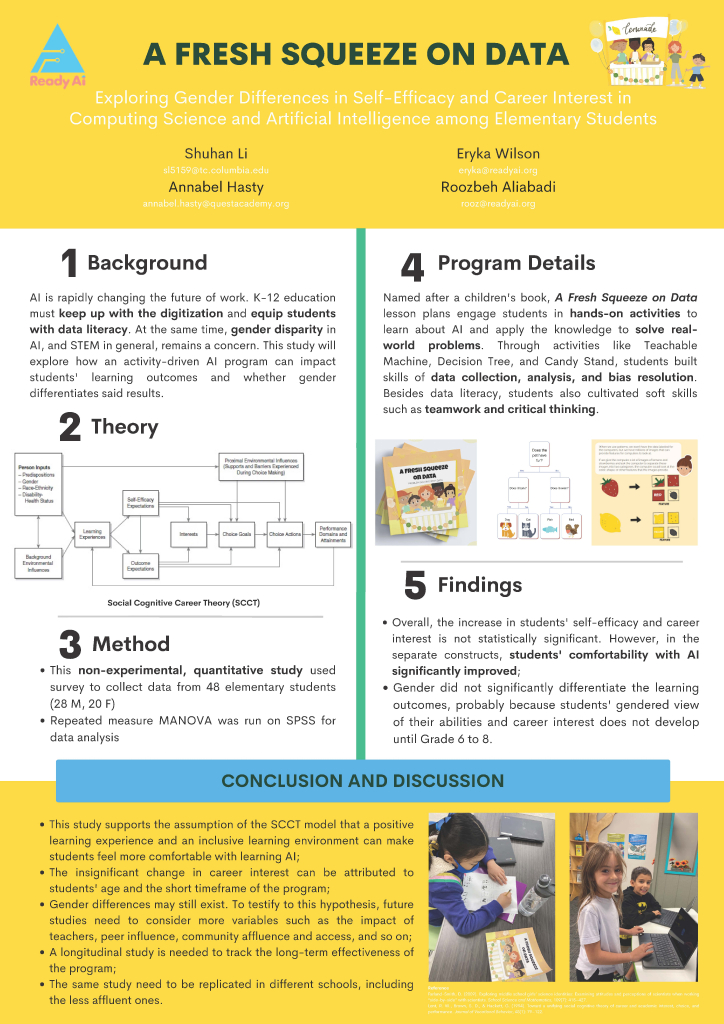
Closing The Gap: Exploring the Gendered Impact of Project-based AI Learning on Students’ Self-efficacy, Career Interest and Content Knowledge
CITERS 2023
Abstract. This nonexperimental survey-based quantitative study measures the effectiveness of a project-based AI learning program in affecting students’ self-efficacy, career interest, and AI content knowledge, as well as addressing potentially gendered differences in the outcomes. The program significantly improved students’ confidence level and AI literacy. Gender differentiation was not statistically significant. Nevertheless, an inclusive and interactive AI educational program can inspire young learners, particularly marginalized students, to pursue relevant careers in the field.
Keywords: Gender equity, Self-efficacy, Career interest, AI PBL program, Social cognitive theory
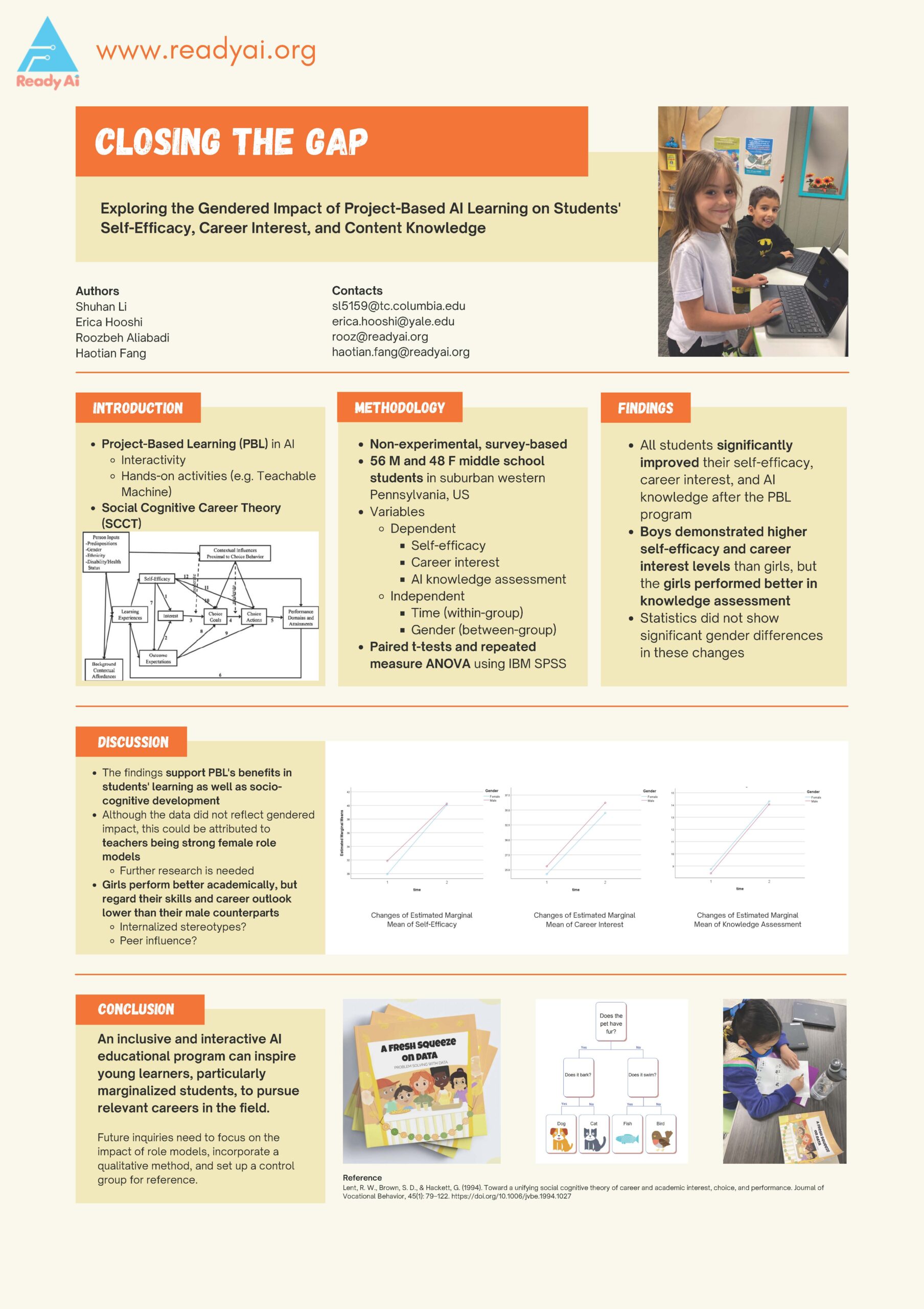
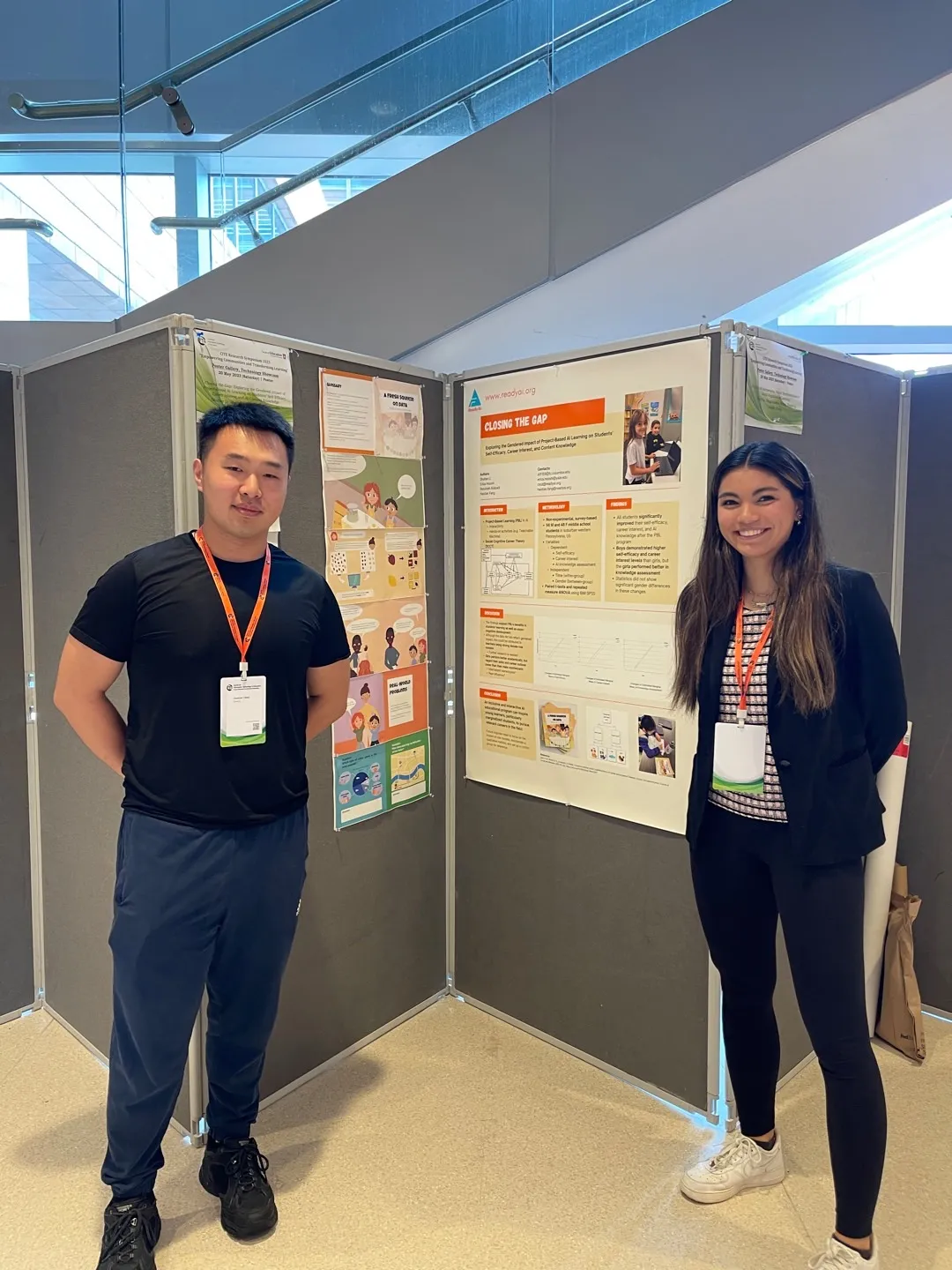
Model AI Assignments 2022
AAAI 2022
Abstract. The Model AI Assignments session seeks to gather and disseminate the best assignment designs of the Artificial Intelligence (AI) Education community. Recognizing that assignments form the core of student learning experience, we here present abstracts of six AI assignments from the 2022 session that are easily adoptable, playfully engaging, and flexible for a variety of instructor needs. Assignment specifications and supporting resources may be found at http://modelai.gettysburg.edu.
Data Bias Assignment
This assignment provides an opportunity for students to gain an understanding of data bias in an authentic way. The teacher and students work together to collect data and analyze the relationship between data and bias. This assignment provides a captivating story and interactive lesson plan for students in third through fifth grade to explore the practical, real-life implications of data bias. To achieve such educational goals, the storyline revolves around a young female character who successfully runs a lemonade stand with the help of her data scientist mother and a diverse group of friends.
Topics: Data Bias, Data Literacy, Introduction to AI, Machine Learning, [Diversity, Equity, Inclusion] (DE&I)
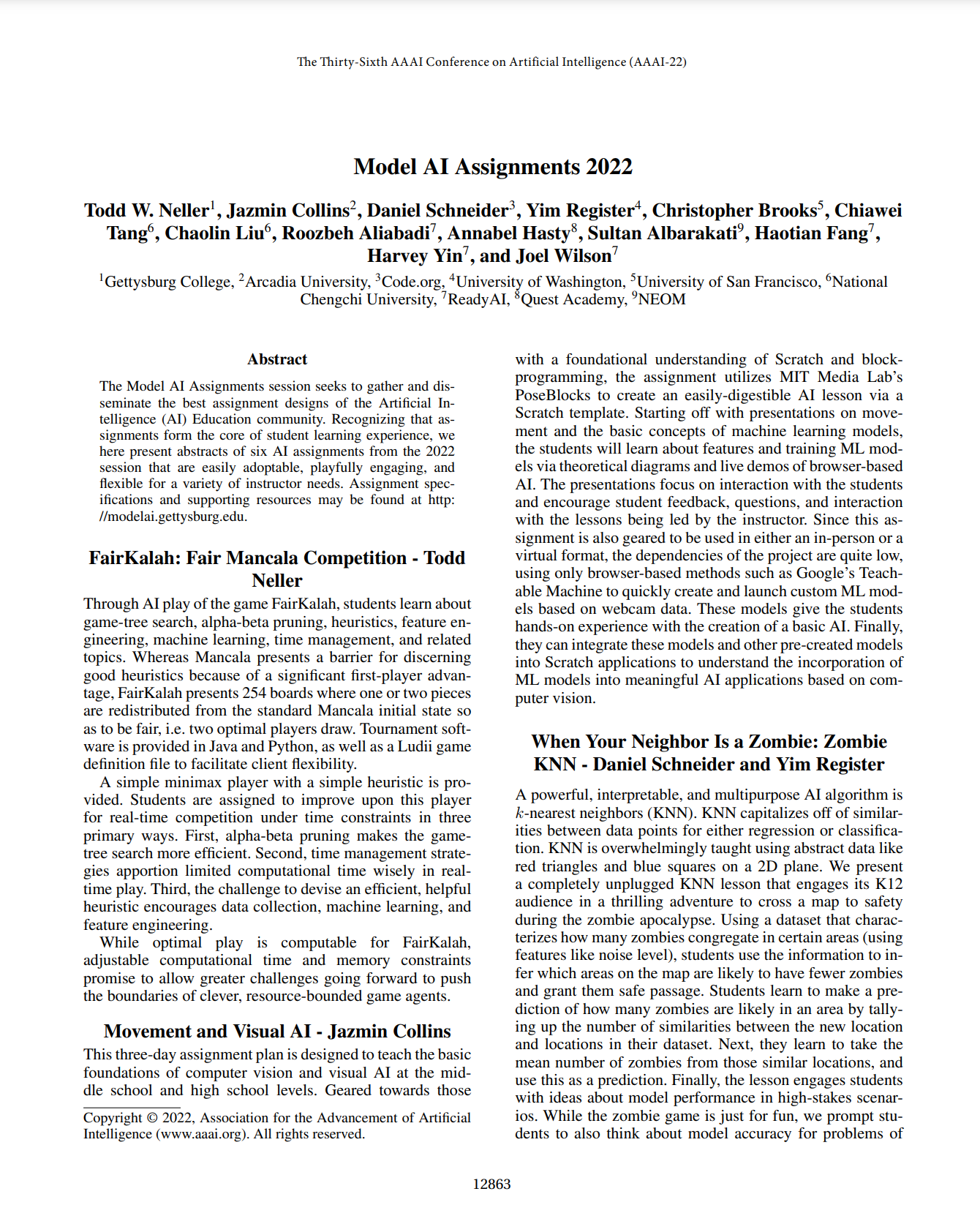
Aspiring for Equity: Perspectives from Design of AI Education
ICLS 2022
Abstract: The explosion of Artificial Intelligence (AI) applications along with findings of algorithmic bias toward marginalized populations requires that we redouble our efforts to make AI education equitable to all youth so they can become informed consumers and responsible creators of AI, and can thoughtfully engage with others around equity issues in AI. This symposium focuses on the discussion of five AI literacy programs/projects from across the United States, each attempting to incorporate equity in diverse ways. Together, the five projects explore AI education using multiple pedagogical approaches and learning contexts with unique affordances and constraints.
